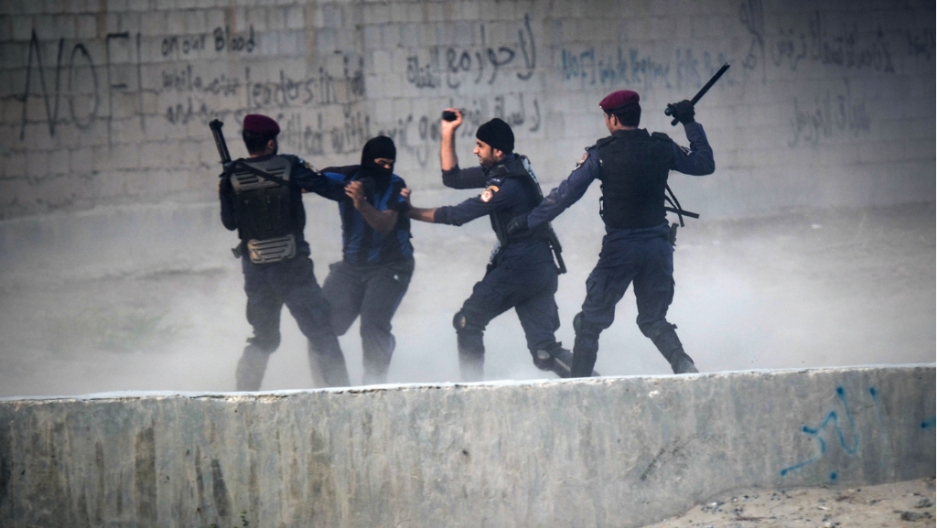The last five years in Bahrain have seen a particular uptick in the government’s repression of political and civil rights. Long after the repression of the 2011 revolution, the Bahraini government continues to bar its citizens from exercising any political agency that contrasts with the Al-Khalifa regime’s interests. The tactics of the government have been clear: The government has passed laws to prevent free and fair elections, arrested political opposition leaders, and it continues to defame and imprison human rights defenders.
First, the weeks leading up to the 2018 election resulted in neither a free nor a fair electoral process: in June 2018, Law No. 25 of 2018 was passed, forbidding individuals who have previously been prosecuted from seeking political office. This law essentially targets the candidacies of prominent political Shia figures, as many had been prosecuted in the past on fraudulent and politically motivated bases. The legislation continues to affect the remaining thousands of prisoners of conscience who were arrested for their political opposition or human rights beliefs.
Second, virtually every opposition political leader has been targeted by the authorities, including, for example: Sheikh Ali Salman, leader of the dissolved Al-Wefaq, was sentenced to life imprisonment in November 2018; Ebrahim al Bashir, leader of the dissolved Al-Waad, was arrested in March 2019 for tweets criticizing the Sultan of Oman. These high-profile arrests sent a clear message to the population that dissent would not be allowed by the government.
Third, in 2017 alone, an estimated 100 people saw their freedom of movement de facto restrained by the authorities because of their engagement with human rights mechanisms and their advocacy for democratization. Government-sponsored defamation of internationally renowned human rights defenders has resulted in threats to their lives. For example, the cars of Ebtisam Al-Saegh and Khalil al-Marzooq were burnt right outside of their properties in 2017 after government-aligned newspapers portrayed them as traitors to the nation. Authorities also blackmail exiled human rights activists by subjecting their family members to reprisals.
Finally, hundreds of these 2500 prisoners, including the well-known Bahrain Thirteen, remain imprisoned from the arrests made after the 2011 protests. They were intentionally overlooked by the March 2020 Royal Pardon given to 1486 prisoners because of COVID-19, showing the lengths to which the government will go to keep political dissidents in the shadows. The majority of these individuals will have spent 10 years behind bars in horrendous conditions, and many will have experienced repeated and deliberate medical negligence by the prison staff––a practice that was condemned in a November 2019 joint statement by multiple United Nations Human Rights Council (UN HRC) Special Procedures offices.
The Bahraini authorities have repeatedly claimed that they are working on reforms, but ADHRB remains committed to reminding the international community that these promises are a smokescreen: In the last four years, advocates of political change have experienced unrelenting harassment. In May 2022, Bahrain will undergo its 4th Universal Periodic Review cycle at the United Nations Human Rights Council, where the international community will see clearly that Bahrain has systematically ignored the recommendations made during its 3rd UPR cycle. Bahrain also disregarded the recommendations made by its own reform institution, the Bahrain Independent Commission of Inquiry (BICI). ADHRB implores the international community to recognize the regression of human rights in Bahrain, and to call on the Bahraini authorities to implement real and lasting change.





